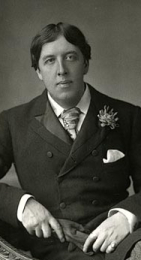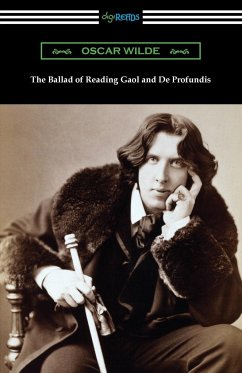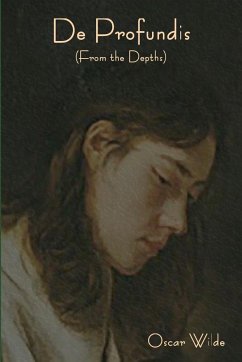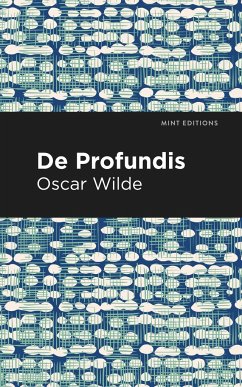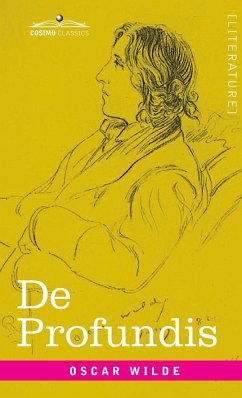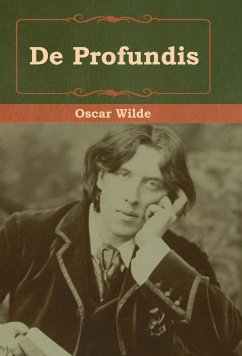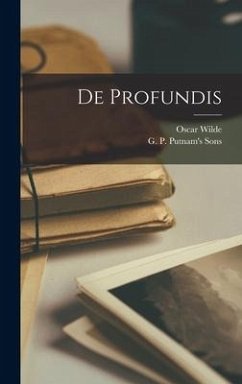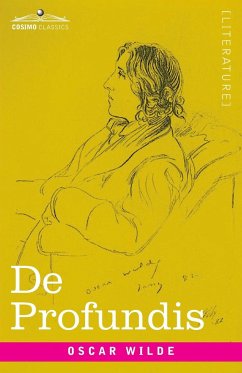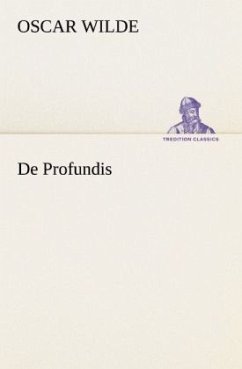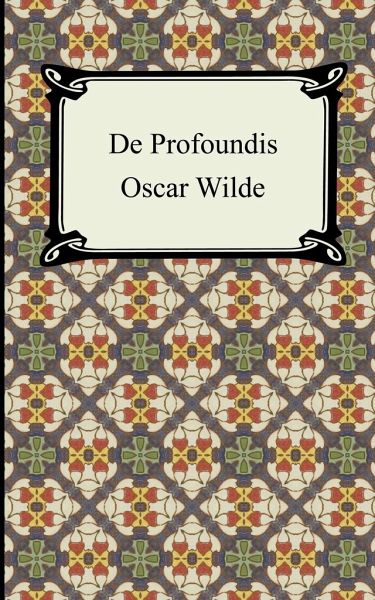
De Profundis
Versandkostenfrei!
Versandfertig in 1-2 Wochen
9,99 €
inkl. MwSt.

PAYBACK Punkte
5 °P sammeln!
Oscar Wilde (1854-1900) was an Irish writer and poet who distinguished himself as a leader of London's school of Aesthetics in the late nineteenth century. He became famous for his long hair, flamboyant dress, green carnations and colorful, biting wit. His successful novels, social comedies, poetry and letters reflected his belief in the supremacy of art. In 1895, Wilde was convicted of gross indecency in a legal suit from the father of his lover, Lord Alfred Douglas. He was imprisoned for two years, serving hard labor, during which time he wrote "De Profundis": a letter to Douglas discussing ...
Oscar Wilde (1854-1900) was an Irish writer and poet who distinguished himself as a leader of London's school of Aesthetics in the late nineteenth century. He became famous for his long hair, flamboyant dress, green carnations and colorful, biting wit. His successful novels, social comedies, poetry and letters reflected his belief in the supremacy of art. In 1895, Wilde was convicted of gross indecency in a legal suit from the father of his lover, Lord Alfred Douglas. He was imprisoned for two years, serving hard labor, during which time he wrote "De Profundis": a letter to Douglas discussing their relationship and the spiritual journey that Wilde had undergone in prison. The eighty page manuscript begins by examining Lord Alfred's behavior and negative influence on Wilde during their three-year relationship; the second part of the letter describes the harsh conditions of prison and the physical and emotional toll it took on the writer. He finishes the letter with a Christian analogy of himself as a symbol of art and truth.



